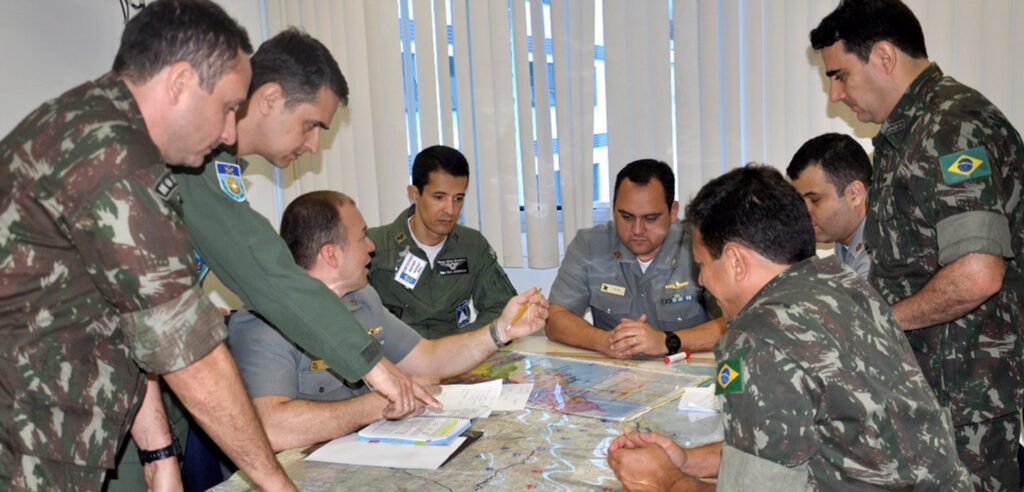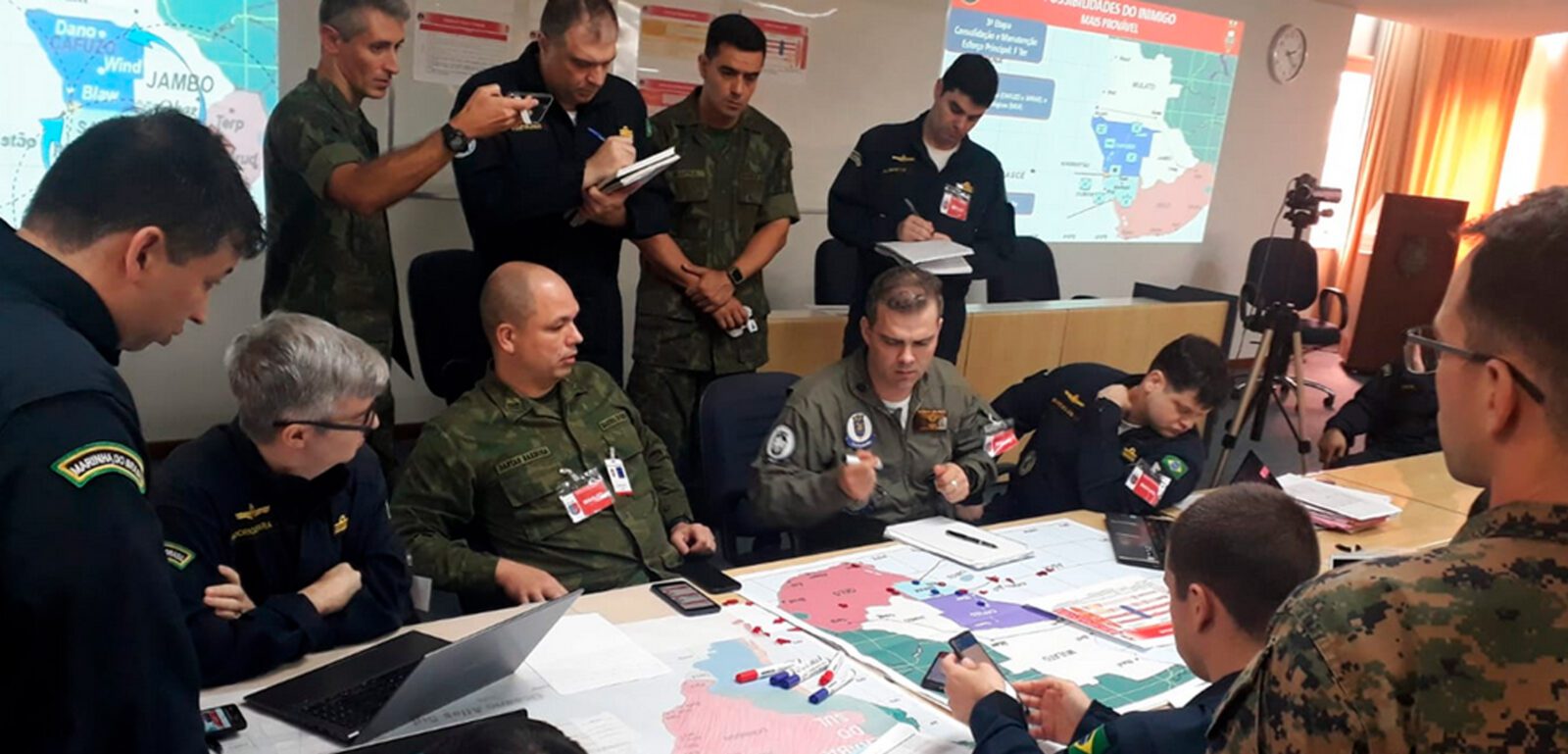This structure is part of the Naval War College and organizes national and international games
By Frigate Captain (T) Rosa Medeiros – Rio de Janeiro, RJ
Since the creation of the Naval War College (EGN) in 1914, war games have been an essential tool in the training of Brazilian Navy (MB) officers. The tool was developed for military purposes, but is currently being used by various sectors of society. The aim is to improve the ability to evaluate, make decisions, train, learn, exercise teamwork and improve procedures and plans, which extends beyond the strictly military field of application.
“War Games consist of a set of situations, fictitious or not, characterized by conflicts of interest and presented chronologically to the players in the form of challenges, whose overcoming implies the simulated use of the military expression of National Power, conditioned by diverse environmental factors, such as geographical, psychosocial, conjunctural and informational aspects,” explains the person in charge of the EGN’s War Games Centre, Captain Marcelo William Monteiro da Silva.
The War Games Centre, which was set up in 1985, has material and human resources aimed at supporting teaching, training personnel and improving employment plans, serving the courses taught by the EGN and the demands of other military organizations and government agencies. The structure is equipped with a computer system to support simulation, the Naval Warfare Simulator System, developed by the Center for Naval Systems Analysis (CASNAV).
With regard to the participants in the games, Commander William observes that there are different types of actors: the “sponsor”, the military organization or institution that demands the assembly of a war game, is responsible for discussing and defining the specifications of the activity, and the “manager”, designated to be responsible for the overall conduct of the project. “Each game is treated as a project right from the specification and assembly phases. In the later phases, other participants are incorporated, such as the experts, the members of the assembly cell, the Control Group, the support group and, of course, the players,” he adds.
Among the various games already carried out by EGN, the following stand out: the External Emergency Plan for the Angra Nuclear Power Plant; the security of the Rio 2016 Olympics, requested by the Command of the 1st Naval District, an MB Organization based in Rio de Janeiro; the Integrated Border Protection Program, for the Institutional Security Cabinet; the Naval Peace Operations Center; and the Federal Revenue Service, as part of the Interagency Operations Training Program. In 2022 and 2023, games were also played to simulate actions inherent to the National Contingency Plan for Oil Spills in Brazilian Jurisdictional Waters. The activity was requested by the MB’s Directorate of Ports and Coasts.
Didactic and international games

The didactic games aimed at EGN students are: “CARIMBÓ”, aimed at student officers on the Staff Course for Intermediate Officers; “MAHJID”, for student officers on the Staff Course for Senior Officers, with the aim of applying the decision-making process in the Theater of Operations Command; and the “Crisis Game” aimed at student officers on the Maritime Policy and Strategy Course.
Another important didactic activity is “AZUVER”. Conducted jointly by the EGN, the Army Command and Staff College (ECEME) and the Air Force Command and Staff College (ECEMAR), the game brings together student officers and instructors from the three military schools.
Each year, the EGN also takes part in the international war games Multilateral War Game (MWG), Inter-American War Game (IAWG) and Trilateral. The first brings together delegations from the navies of some of the countries on the American continent, including diplomatic representatives. During the simulation, players are confronted with problems inherent in the employment of a Multinational Naval Task Force – considering the political-strategic and operational-tactical decision-making levels – in a scenario involving aspects of common interest between the participating navies. The IAWG is a game played between Naval War Colleges on the American continent. The Trilateral War Game, on the other hand, is conducted by delegations from the Naval Warfare Schools of Argentina, Brazil and Uruguay and aims to promote interaction between instructors from those three schools.
“War games are valuable tools not only for training personnel, but also as a source of subsidies for preparing the Military Expression of National Power, helping to identify gaps in resources, capabilities and knowledge. They also make it possible to anticipate potential problems and, consequently, to investigate possible solutions in good time, without the risk of material and human losses,” concludes Commander William.
Source: Agência Marinha de Notícias
